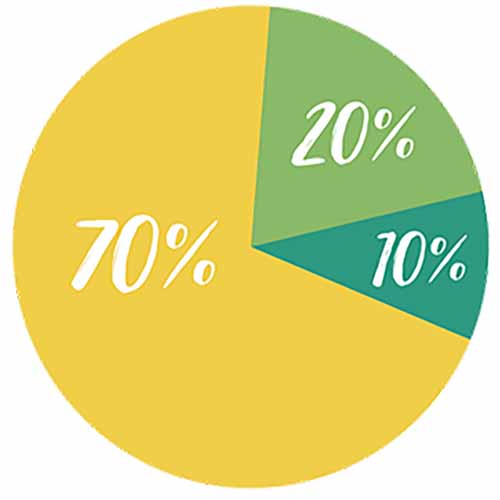Managing Performance

Managing performance involves undertaking regular performance conversations with staff, recognising excellent performance and celebrating successes as well as taking decisive action when performance falls below requirements. It is about being proactive and takes accountability for identifying and addressing issues impacting on team performance.
Behavioural Statements
- I set clear expectations of behaviours and standards in work.
- I set challenging but realistic targets for individuals and the team/ group.
- I hold regular one-to-one meetings with direct reports.
- I take accountability for pro-actively identifying and addressing issues impacting on performance.
- I recognise excellent performance and celebrate success.
- I take decisive action when performance falls below requirements.
Example of on-the-job development activities (70)
Set clear expectations and metrics which reflect the University’s values and expected standards. Review these regularly against results and give feedback widely to individuals and teams.
Jointly set realistic targets and establish plans to deliver these. Put in place mechanisms to review these on a regular basis. Provide ongoing coaching to the individual to ensure they are on track and help resolve blockages.
Identify a way of measuring how effective your team members feel you conduct your one-to-one meetings.
Introduce work updates to share with the team that outline individual plans and priorities for the week, any problems they are experiencing and updates on progress of work. This creates a process for checking in with progress and will increase the productivity and performance of the team.
Recognise and acknowledge the accomplishments of your team and others within the organisation to create the sense of collective performance. Find at least 3 different ways to recognise teams or individuals and reflect on the impact.
Consider how you can ensure the team are clear about performance expectations and what the process is when this falls below what is required. Develop a plan to communicate expectations, explaining how often you will communicate, and how you will measure performance is on target.
Example of social and peer learning activities (20)
Ask your peers about their approach to setting behaviours and standards. Find out what they do that is different to your approach. Consider new ideas that you can adopt.
Knowledge share with others – ask a number of key people to review your challenging / realistic targets and get feedback.
Ask your peers about how they modify and adapt their behaviour to suit all the different members in their team?
Using a coach, identify the area’s you are accountable for identifying and addressing issues impacting on performance. Develop a plan to work towards, and monitor progress over the coaching relationship.
Do some research using different mediums i.e. professional research data analysis, benchmark other organisations, interview your peer etc and look for innovative ways to recognise excellent performance and celebrate success.
Review the consequences of not taking decisive action when performance falls below requirements. Attend a local tribunal as an observer, to see how issues can escalate externally.
Recommended Learning Resources (10)
TSLD127 Growing Your Team’s Performance (SL&OD Training Catalogue)
Managing Performance (LinkedIn)
Clarify employee objectives (LinkedIn)
Setting goals and objectives (L&D Toolkit)
Leading virtual meetings (LinkedIn video)
Meetings (L&D Toolkit)
Understanding How You Affect Performance In Your Team (L&D Toolkit)
Holding people accountable (LinkedIn)
TMS71 Coaching Sills for Managers (L&OD Course)
Celebrating success (LinkedIn)
Celebrating Achievement (L&D Toolkit)
Recognition (Staffnet)
Managing Employee Performance Problems (LinkedIn)
TMS86 Giving Feedback Effectively (L&OD Course)
FBF61A Having Difficult Conversations (L&OD Course)
Suggested reflection / discussion questions
What is your plan to ensure every team member knows what is expected of them? How will you maintain these standards?
With the feedback you received from key people, how will you implement any improvements?
How will you identify a way of measuring how effective your team members feel you conduct your one-to-one meetings?
Think about your style of approach, does this always get the best results. Are you aware of the team and individuals' response if you use the wrong style i.e. tell instead of coaching?
How do you know how your team and individuals want to be recognised?
How often do you review potential falls in performance with your People & Organisational Partner, to ensure a plan is in place to support improvements and prevent escalation?

